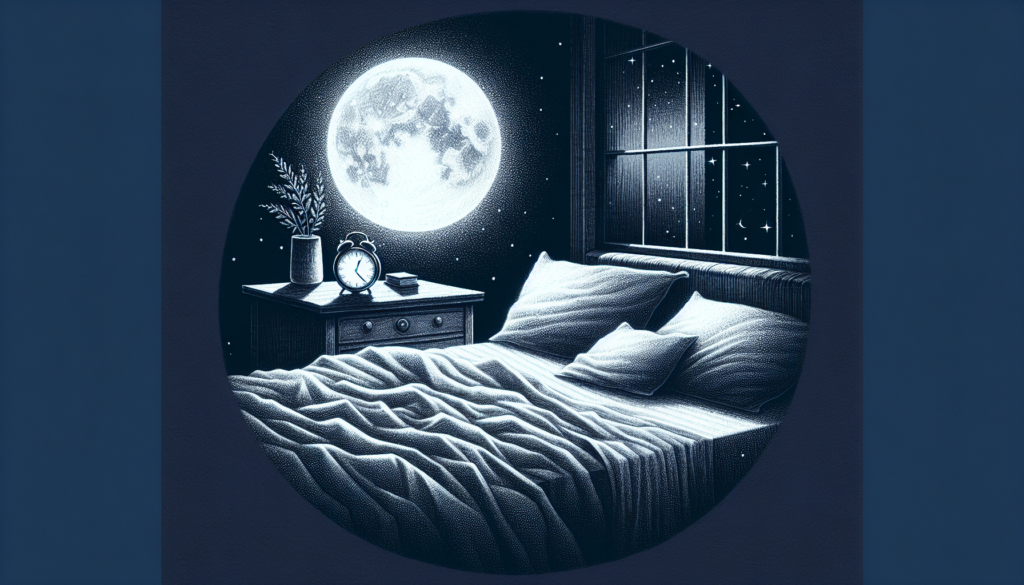Isn’t it peculiar how you can solve quadratic equations in your sleep but still have trouble figuring out why that midnight snack seemed like such a good idea? Well, my dear insomniac, gather ’round. Let’s embark on an absurdly entertaining journey into the murky world of sleep deprivation and its clandestine conspiracy against your waistline.
The Connection Between Sleep and Weight Loss
So, why does Mother Nature chuckle menacingly every time you skimp on sleep? It turns out, she’s got a fair reason. The delightful but slightly bewildering relationship between snoozing and slimming down is one where sleep plays either as the hero or as the villain of your weight loss journey. Let’s dissect this symbiotic (or is it parasitic?) relationship.
Why You Snack Like a Gremlin When You’re Sleep-Deprived
If you’ve ever found yourself in the kitchen at 3 AM, clutching a spoon like a weapon and contemplating some cold leftover pasta, you’re in good company. Lack of sleep messes with your appetite hormones, mainly ghrelin and leptin. Ghrelin is that enthusiastic cheerleader shouting, “Eat! Eat!” while leptin, who’s supposed to say, “Woah! That’s enough!” falls asleep on the job. As a result, you end up with a late-night snack fest that even hobbits would envy.
The Great Metabolic Slowdown
Here’s the kicker: sleep deprivation not only makes you a midnight snacker but it also throws a wrench in your metabolism, akin to trying to surf while juggling flaming torches. When you don’t get enough shuteye, your body experiences a reduction in resting metabolic rate (RMR). This means you’ll burn fewer calories during the wee hours of the morning when normally dreaming of riding unicorns and winning lottery tickets.
The Sciencey Bit: Hormones and Sleep
Cue the dramatic music, because it’s time to dive into the hormone soup that is your body on inadequate sleep. This blend of biology and betrayal will have you questioning why your body decided to enroll in an acting class without telling you.
Keeping Up with Ghrelin and Leptin
Imagine two sitcom characters in your brain, one overly enthusiastic and never satiated (that’s Ghrelin) and the other a bit lazy and easily distracted (that’s Leptin). Together, they regulate your hunger and feelings of fullness. Lack of sleep makes Ghrelin go full throttle while Leptin takes a nap—it’s like letting loose toddlers high on sugar in your appetite control center.
Cortisol: The Plot Twister
Enter the villain of our story, Cortisol, the stress hormone, who loves drama and escalates any situation. When you get less than ideal shuteye, Cortisol levels rise, triggering your body to retain fat like it’s preparing for an ice age. It convinces your body that today could be the day it needs to climb Everest or duel with pirates. More stress, more fat retention, fewer belt notches achieved.

Sleep Stages: More Than Just Dream Land
Sleep is not just an opportunity to audition for the role of Sleeping Beauty. It’s a cycle of stages, each vital for keeping you a serene human being instead of a grumpy break room dweller.
REM Sleep: Your Brain’s Own Nightclub
During Rapid Eye Movement (REM) sleep, your brain has a bit of a rave, organizing memories, dealing with emotions, and yes—burning a few calories. Lack of REM means more weight gained because your sleep cycle skips the calorie-burning dance party your body actually lined up for.
Non-REM Sleep: Your Body Recharges
Non-Rapid Eye Movement (Non-REM) sleep is the solid, reliable sleep stage where the body focuses on physical repair. When you don’t get enough of this, not only do you wake up feeling like a potato that’s rolled off the couch, but it also disrupts the balance of those pesky appetite hormones and cortisol. This sabotages your body’s efforts in burning off that ‘after-just-one-more-bite’ pie.
Practical Tips to Improve Your Sleep and Shed Pounds
Enough of the shady hormone dealings—let’s focus on how you can transform into that well-rested, fit legend you’ve been dreaming of between REM stages.
Embrace the Art of Sleep Hygiene
Sleep hygiene isn’t about taking your mattress to the Laundromat (though a clean bed never hurt anyone). It’s about concocting the perfect environment for sleep. Consider investing in blackout curtains to turn your bedroom into a cave worthy of a sloth or a vampire.
Dance the Caffeine Cutback
Dancing might be a stretch, but cutting back on caffeine is essential for warding off the dreaded hyperactive night owl syndrome. Limit caffeine intake to the early parts of the day, and embrace decaf life like it’s your new best friend.
Blue Light Blocking: Not a Police Operation
Your phone, laptop, and TV emit blue light that kindly asks your brain to stay awake while your eyelids protest meekly. Using blue light filters or powering down devices at least an hour before sleep can make a world of difference. Or, you could just toss them out the window… but then how will you check how many steps you didn’t take today?
Consistency: More Than a Trait for Pet Obedience
Trying to go to bed at the same time every night, maybe after counting a fleet of sheep, primes your body’s internal clock to know when it’s bedtime. Regularity isn’t just for breakfast cereals, after all. It helps your body respect the sacred ritual of sleep.

The Psychological Angle: Why a Stressed Mind Leads to Poor Sleep
Your mind is like the director of a chaotic talent show with contestants who mostly rehearse at midnight. Stress and anxiety fuel the late-night reruns of “Worry: The Mini-series” featuring all-star casts about regrets and uncertainties. This mental unrest directly affects sleep quality.
Tips for a Mind-Achieved Zen State
Before bed, try engaging in some mindful meditation or gentle yoga to silence the internal cacophony. Alternatively, classic reading (not the horror novels unless sleep isn’t your goal) can redirect your brain away from stress-induced infomercials about life’s problems.
White Noise Wonders
If your thoughts sound like they’re producing the next grunge album, consider a white noise machine to drown out that mental noise pollution. Ocean waves and rainfall sounds can send your brain on a vacation while your body catches some much-needed z’s.
How Lack of Sleep Derails Your Gym Performance
Have you noticed that after a poor night’s sleep, your gym routine feels akin to dragging a reluctant donkey through quicksand? Your muscles need recovery periods, which only happen during—you guessed it—those vital sleep stages.
Workout Woes From Sleep Debt
When you’re sleep-deprived, even the simplest exercise can feel like climbing Olympus Mons. You risk more injuries and perform with less accuracy, which leads you to the “Snooze Button, II” (the sequel to your missed morning alarm). Sleep debt converts your muscle aspirations into creaky elevator attempts.
Replenishing Muscles with Zzzs
Without adequate sleep, your body’s ability to heal micro-tears in muscles diminishes. Try counting reps and counting sheep in tandem; after all, Arnold Schwarzenegger didn’t become a Terminator on four hours of sleep!
Conclusion: Time to Snooze, Not Lose
“Nap now, fit later” might not make for an inspiring poster, but it surely encompasses a riveting truth. Adequate sleep is your not-so-secret weapon in shedding pounds and keeping your body in prime operational condition. So next time the Sandman tries to skimp on your bedtime granules, remind yourself of the elaborate calorie conspiracies backing your need for sleep. Embrace your inner slumber—a masterpiece in the art of rest that hilariously and covertly aids weight loss.
